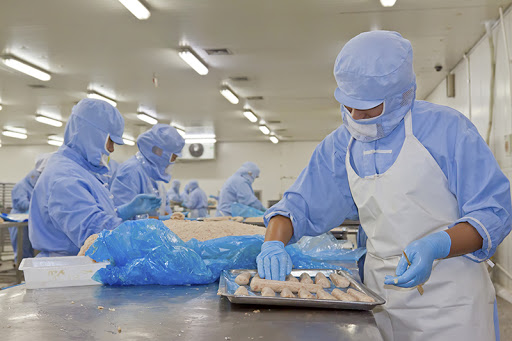Food safety in the time of COVID19
- April 20, 2020
- Posted by: Dhivya Srinivasan
- Categories: COVID, Training

The outbreak of COVID-19 has tested a lot of industries considerably affecting a large number of countries. The food industry is one of them, but the past few weeks have seen the industry come up with brilliant initiatives and alternatives to keep their customers satisfied. While the main transmission of the disease is through coughing, sneezing and airborne, there is no concrete evidence that food is a likely source or causes the transmission of the virus. Regardless, underestimating good hygiene can be disastrous.
In the food industry, the importance of good hygiene can not be slighted when it comes to preventing the spread of infection. It is critical to have a better understanding of bad practices, transmission mediums and how to maintain cleanliness through the whole process.
Immediate training for employees
In this time of turmoil, the employees should not be confused about the path to follow. Conduct training on social distancing and other basics. Here’s a list of topics that your employees should gain knowledge about.
Key pain points that should be tackled during the training:
- Basic hygiene and cleaning concepts
- Cleaning chemistry
- Food microbiology
- Disinfection and Sanitation
- Monitoring and documentation
- Good Manufacturing Processes
- Personal Hygiene for Food and Beverage Plants
- Handwashing
- Safe handling and application of detergents and disinfectants

While disregarding any basic hygiene practices, the food handlers could possibly spread germs to people or surfaces in their environment. Here are some basic follow-throughs that every restaurant can implement to reduce the risk that any flu-like virus such as Corona poses to our food supply:
- Protective gear – anyone who handles food within the premises should be wearing gloves and hairnets. Protective equipment is mandatory in such circumstances.
- Other preventive measures could include frequent hand-washing and not touching mouth or any part of the face. All the food handlers and other employees must regularly wash their hands (remember the rule – arms, elbows, wrist, knuckles, palms, and fingers) thoroughly with soap and water for a minute, and avoid touching their nose, mouth, or eyes.
- Cooking measures like sticking to cooking times and temperatures, and proper scrubbing and washing of fresh produce. Since any virus can live on surfaces and infect others after being deposited on the surface, so there is little chance that fruits and vegetables would carry an infection risk all the way to the market. As long as proper basic steps are followed, transmission through food can be completely avoided.
- It is the responsibility of every restaurant or food-based organization to advise their employees to work from home if they experience any symptoms that remotely resemble the virus. The WHO recommends that any food service worker with the symptoms should not be on the premises. This also poses an ethical responsibility for the employees and managers to alert their workers to any potential risks.

